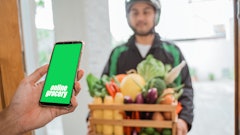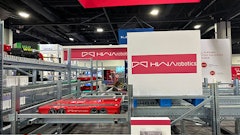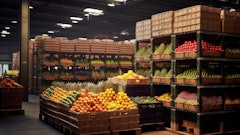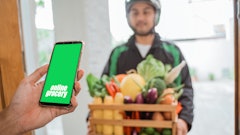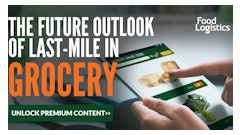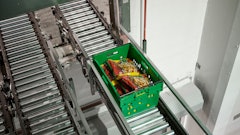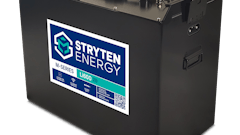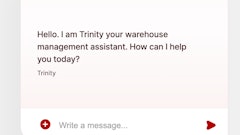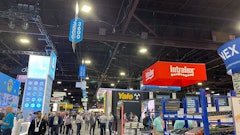As food manufacturers compete for position on store shelves and in refrigerated cases, and ultimately into the shopping carts of American consumers, they’re finding new and legitimate competition from an unlikely source—grocery wholesalers with their own private-label brands.
“Wholesalers have always been a large part of the private-label market,” says Dayne Twinings, a spokesman for the Private Label Manufacturers Association (PLMA) in New York, “but now, wholesalers have increased the amount of energy and attention they are giving to their private-label brands, expanding categories and the range of products available, and making more upscale products.”
In fact, just about every wholesaler in the country—both large and small—offers some proprietary private-label brands. Companies like Supervalu, with more than 6,000 private-label items under six brand names, and Nash Finch Co., Pedina, MN, with almost 3,000 SKUs under the Our Family and Value Choice labels, are quickly becoming the norm in the industry.
“Private labels are a great opportunity for us to keep our retailers as customers and for the retailers to build customers of their own,” explains Craig Espelien, general director for store brands and strategic sourcing for Minneapolis-based Supervalu.
They create such an opportunity that in America today, one of every five grocery items sold bears a private label. Sales of private-label products topped $40.5 billion last year, an all-time high.
So what’s fueling this sudden interest in private labels among wholesalers? The answer is simple: private label is a low-cost way to make easy money and improve market share as everyone tries to address competition from the Wal-Marts of the world.
“For a wholesaler, private label has a very good margin—it’s less costly to produce and the price point is not much different than the national brand,” observes Janet Hoffman, a North American retail practice consultant and managing partner at Accenture. “On average, the margin generated by private label is two to three times higher than the national brands.”
Dan Mazur, senior vice president of center store program management at Topco, Skokie, IL, reports the 5,500 private-label items in his company’s stable of 17 brands generally cost 30 percent to 60 percent less to produce, offer 15 percent to 20 percent difference in cost to the consumer and 10 percent to 15 percent more cost reductions and margin enhancements for retailers. “For us, the costs for procurement of private labels are a lot cheaper and we are able to pass those savings on to the retailer, who then passes it on to the consumer,” he says.
Greater Profit Potential
For wholesalers, the motives behind creating and carrying private-label brands are often self-serving. “If we can build an emotional connection to our brands among the consumers, we create more loyalty [from the retailers] to keep Supervalu as a supplier,” says Espelien.
Jeff Poore, senior vice president of Nash Finch, agrees. “Private-label makes our customers more competitive and gives them greater stability, which drives more business and sales for us,” he says.
Private label is also a huge opportunity to capture sales of some product categories that are not being served by the large manufacturers. Supervalu has built an entire branding portfolio around just those product categories, and has turned them into a huge profit center.
“We created a concept called signature brands, making category-specific brands to fill a specific niche, and then brought them to a level that the store brands could never do,” says Espelien.
Particularly successful for Supervalu has been its signature Carlita brand that appeals directly to Hispanic consumers. Its other brand names include NutriPlan for pet products, Super Chill for beverages, Super Crunch for snacks, Daily Source for vitamins, Healthy Generations for health and beauty items and Stone Ridge Creamery for ice cream and dairy.
Other wholesalers have found similar success within very limited grocery segments, most notably, the markets for ethnic and natural/organic foods. Among them is Rhee Bros., a wholesaler that started with a small warehouse in Silver Spring, MD, in 1976, supplying Koreans living in the United States with real Asian foods from overseas. Today, Rhee Bros. carries more than 10,000 items, including five proprietary private-label brands, that it distributes to more than 1,500 stores nationwide.
Now based in Columbia, MD, the company expects to surpass $500,000 in revenue this year, due in large part to its private-label brands, says David Lee, its president. Those brands include Assi, Issine, Hana, Kabuto and Emperor, and include about 3,000 unique SKUs.
But perhaps no market segment has been more ready for private-label growth than the organic/natural foods segment. Because this is still a very new category for many customers, brand loyalty is still a few years away, say most experts, and the higher price point that the national brands command makes cheaper private-label items a very desirable alternative.
Two wholesalers, United Natural Foods, Dayville, CT, and Tree of Life, St. Augustine, FL, have always had a lock on the organics/natural foods market. Now many of the stores they supply are launching their own private-label brands. Whole Foods Markets, Austin, TX, and Wild Oats Markets, Boulder, CO, have both already developed a huge stable of private-labels, and other, more traditional supermarket chains are doing the same—including Kroger (Naturally Preferred), Shaw’s (Wild Harvest), Giant Food (Nature’s Promise) and Loblaws (PC Organics).
It should come as no surprise, then, that other wholesalers are also making forays into this very specialized market as well. Topco recently launched the Full Circle brand of natural and organic products. Pittsburgh’s Giant Eagle carries more than 30 items under its Nature’s Basket label.
ssociated Grocers of Seattle now features a number of organic/natural food products under its Western Family line. And that’s just the beginning.
“Expect to see a lot more specialization from the wholesalers, especially in ethnic, gourmet and organic,” predicts John Block, executive vice president of the Food Marketing Institute in Washington and president of its Wholesale Division. “They’re making sure that their operations fit the demographics of the communities around them and those they serve.”
Are Retailers Buying It?
With food being such a low-margin business, wholesalers can only expect to make money from their own proprietary private-label programs if retailers buy the product. That is exactly what wholesalers are banking on, and they are going out of their way to make it as easy as possible for retailers to do just that.
The biggest thing they’ve done so far is empower the retailers who carry their brands to compete with other emerging retail formats, like mass merchandisers, warehouse club stores, dollar stores, chain drug stores, convenience stores and limited-assortment stores.
“As a retailer, I know I’m not going to beat Wal-Mart on price, so I’ve got to give the consumer another reason to come back to my store. Private label gives me a competitive advantage because he knows he can’t buy this stuff at Wal-Mart,” says Richard Kochersperger, a professor of food marketing at St. Joseph’s University, Philadelphia.
“Our private branded product is a critical tool in their arsenal to combat these stores,” says Poore of Nash Finch. “They can offer differentiation between themselves and the mass merchandisers. We offer them an opportunity to compete and still offer the quality of the national brands at an equal or lower price than what they’re charging.”
They’re also minimizing the risk to retailers. “The risk—the quality control process and the ability to maintain the level of quality so that customers want to take a chance with that brand rather than the national brands—falls on the wholesalers,” notes Hoffman, who is based out of Accenture’s San Francisco office.
Wholesalers do not generally launch a brand without first testing the waters. “They do selective categories before a large-scale brand launch,” she continues. “They’ll start with dairy or bakery or frozen first before going through the whole store.”
But for many retailers, the real benefit of private label is in the scale more than anything else. That’s been the lifeblood of Topco, whose members, “from an efficiency standpoint, find it’s better to go with a Topco brand because it has volume behind it,” says Mazur. “They’re combining purchases so that they can get better value, packaging, procurement, labeling and distribution of these brands without having to go at it on their own.”
“In the case of these coops, [wholesaler private label] makes perfect sense because the individual members probably don’t have the wherewithal to develop their own private-label programs,” says Pat Turpin, a partner in Los Angeles-based Bayside Ventures, an investment firm specializing in emerging food businesses. “They can turn to their wholesale supplier to give it to them with little or no risk. In a situation like this, I’m not sure what the cons are.”
“We give the retailer high profit margins and the consumer low prices. You can’t beat that,” says Michael Larmon, brand manager for Effortless Entrees, a frozen food brand launched last year by Golden Bay, a subsidiary of Federated Group, Arlington Heights, IL.
Better Than The Real Thing
Choosing private labels are also getting easier from a quality standpoint. In the past, private-label brands weren’t much of a threat for the big national brands. They were considered an inferior, low-cost alternative. Labels and packaging were usually dull and uninviting. But, with the rising entry of grocery wholesalers into the private-label arena, all that has started to change. Because the wholesalers have a vested interest in the success of the brands, they’re paying much greater attention to product quality.
Supervalu, for example, has an entire quality assurance department that has taken extensive steps to ensure that its customers will always have a quality experience with every Supervalu store brands product. The department tests more than 1,600 store brands products each year to guarantee that products are being manufactured to strict standards.
Supervalu, “works hard to provide consumers with a superior product at the best possible price,” says Espelien. “Our goal is to make their experience with our products equal to or better than the most popular national brands.”
“If a customer is staring at a shelf and they see a brand that is cheaper than a national brand, we want him to take it home, try it, like it and come back for it again,” says Espelien. “To do that, we needed to change the image in the mind of the consumer of the brands in terms of quality and value.”
Says Nash Finch’s Poore, “We’re pursuing our labeling and packaging just as enthusiastically as the national brands and now we’re doing a lot of testing for quality assurance. We’re investing significantly in test kitchens to make sure we have the right products and taste profiles for our [private-label] customers.”
“Private brands have come a long way. Our standards are higher than the national brands; our packaging is fantastic; and the variety is unexpected,” adds Golden Bay’s Larmon.
| Category | Market Share | Growth |
| Refrigerated foods | 32% | 9% |
| Paper, plastic, wraps | 31% | 2% |
| Frozen foods | 25% | 3% |
| Pet foods | 21% | 11% |
| Shelf-stable foods | 19% | 5% |
| Diapers/feminine hygiene | 14% | -1% |
| Healthcare items | 14% | 3% |
| Non-alcoholic beverages | 12% | 3% |
| Home care | 10% | 3% |
| Snacks/confectionary | 9% | 8% |
| Alcohol | 6% | 3% |
| Personal care | 5% | 3% |
| Cosmetics | 2% | 23% |
| Baby foods | 2% | 13% |
Source: ACNielsen |
||





